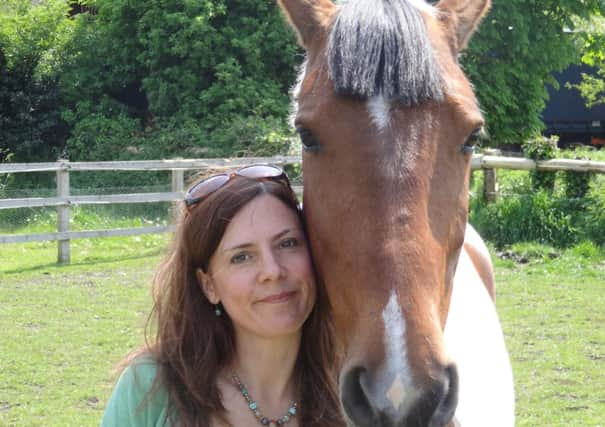In The Saddle: A healthy horse is a happy horse


This month my mare April was due her regular boosters. Recently we had our horse vet, Lara, call to our house to organise everything.
April was a little star and didn’t flinch at all when the needle went straight into her muscle. Despite me popping a head collar on her and holding her, I probably didn’t need to.
Advertisement
Hide AdAdvertisement
Hide AdAfter Lara had given her the injection and rubbed the neck area where she had injected her, she had time to give April a nice pat and a quick chat.
She explained that this year we had to have a tetanus injection, as these only give protection for two years. So, we only need to have this one every other year. This vaccination in particular provides protection against the bacteria called Clostridium tetani which is found in soil and horse manure.
The incubation period is anything from a week to three weeks afterwards.
If a horse gets an open wound, even a tiny one, it can enter through that (as well as in some cases through eating contaminated soil left on grass). A staggering 90 per cent of horses who contract it, and have not been vaccinated, sadly die from this. Those that do survive are usually in intensive care and require nursing for some weeks.
Advertisement
Hide AdAdvertisement
Hide AdEarly signs are a vague stiffness in the head and limbs, progressing to a reluctance to move. In some cases the horse can have spasms in their muscles, flared nostrils, trembling and wide eyes. In addition to the tetanus we also had her booster for flu done too. Both the boosters are combined in one needle, so there is no need for two jabs.
The flu vaccination works pretty much in the same way. It helps to protect the horse from the highly contagious viral disease of the respiratory system. This can be caught from another horse or indirectly from the contaminated air. Horse sales or shows are where it spreads super fast.
Its incubation period is only 1-3 days and symptoms include a high temperature (up to 41 degrees centigrade), a harsh dry cough, runny clear nose which changes to a thick yellow colour, lethargy and loss of appetite.
It can develop into life-threatening bronchitis or pneumonia and unvaccinated horses. So, what seems like just routine injections can actually help save your horse’s life in the future.
Advertisement
Hide AdAdvertisement
Hide AdWhilst it’s vital horses and ponies receive these, you must also ensure they are kept up-to-date too.
Any lapse in the boosters will not only mean a lack of protection for your horse, but also having to start the whole vaccinations procedure again from scratch – which is more expensive. It might also affect your equine insurance too should you need to make a claim in the future.
For this year we are all up-to-date and sorted. I’ve just got to get my cat and dog booked in now at the vets in Epworth. And I wonder why I’m always skint!
* To keep up to date with Anita, visit http://inthesaddleanitamarsh.wordpress.com or follow @InTheSaddleBlog on Twitter.